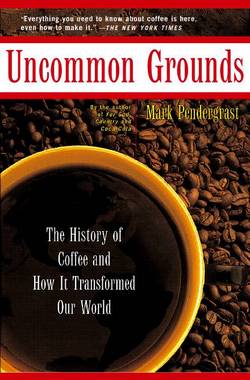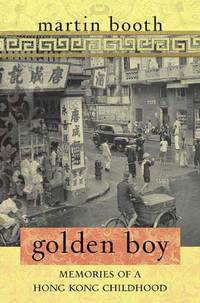
Schumpeter once wrote that “We all of us like a sparkling error better than a trivial truth.”
This image reminds me of the prudence of adopting a healthy scepticism toward the “sparkling error.”
I believe that the image from Finding Nemo is by computer graphics artist Randy Berrett. The source of the image is the online version of Joe Morgenstern. “MORGENSTERN ON MOVIES: Finding Pixar; A new exhibit examines a studio that can’t stop examining itself.” The Wall Street Journal (Sun., January 7, 2006): P11.
The “sparkling error” Schumpeter quote is from Schumpeter’s diary, and is quoted in: Swedberg, Richard. Schumpeter: A Biography. Princeton, NJ: Princeton University Press, 1991, aphorism 86, on page 205.
Month: January 2006
Ben Rogge on Consistency, Smith and Ricardo
Some would argue that consistency is not always a good thing. Ben Rogge’s favorite quote from Emerson was:
A foolish consistency is the hobgoblin of little minds, adored by little statesman and philosophers and divines.
Rogge used to mention this quote when he defended Adam Smith against the charge of inconsistency. He would say that Smith’s errors on one page would not keep him from writing an important (albeit inconsistent) truth on the next page. In this regard, he contrasted Smith with Ricardo. Ricardo was consistent, and since he was wrong at the start, he was consistently wrong throughout.
Source for the Emerson quote:
Bartlett, John. Familiar Quotations. Boston: Little, Brown and Company, 1955, p. 501, column b. Bartlett gives the source as Emerson’s essay “Self-Reliance.”
“How Great Thou Art”
(p. 1A) SAGO, W.Va.–Twelve coal miners who were trapped underground for more than 41 hours after an explosion were found alive late Tuesday night, triggering a joyous celebration among relatives here.
“Oh, my God, oh, my God,” gasped Anna McCloy, a 25-year-old mother of two whose husband, Randal, 26, was among the missing.
“They’re alive. I can’t believe it. They’re alive.”
Around her, townspeople were singing the hymn “How Great Thou Art.”
The elusive miracle was credited to God. Later, when the real tragedy was learned, the same people who credited God with the miracle, inconsistently blamed human beings for the tragedy.
Good luck finding the article quoted above–as far as I can tell, the Omaha World-Herald has deleted this article from their online archive. The Omaha World-Herald credits the source of the article as having been The Washington Post. The citation to the hard copy of the Omaha World-Herald version is:
“A Miracle: 12 Miners Found Alive.” Omaha World-Herald (sunrise edition, Weds., Jan. 4, 2006): 1A & 2A.
Schumpeter: “let us begin”
David Rockefeller remembers Schumpeter’s arrival to teach a graduate level class:
(p. 79) Arriving in class with an air of being in a great hurry, he would throw his overcoat on a chair, whip his handkerchief’ from his pocket, flip it out toward the room, then fold it and carefully mop his brow and the top of his balding head before saying, in his heavy German accent, “Ladies and gentlemen, let us begin.”
Rockefeller, David. Memoirs. New York: Random House, 2002.
Ethiopian Comparative Advantage Squandered through Graft and Corruption: More on Why Africa is Poor
 The source for the image of the book is: http://nasw.org/users/markp/grounds.html
The source for the image of the book is: http://nasw.org/users/markp/grounds.html
One theory of how countries acquire a comparative advantage in a commodity ties the comparative advantage to some natural resource, climate or other "endowment" advantage the country has. This partially ‘explains’ some comparative advantages, but leaves many others unexplained (like why Japan has a comparative advantage in cars).
But even on the endowment theory’s own terms, it would seem that an initial comparative advantage can be squandered. Consider Ethiopia, which is the country in which coffee beans were first discovered, many centuries ago.
(p. 153) . . . Ethiopia, the birthplace of coffee, now exported a negligible amount of the bean, largely due to graft and corruption extending from King Menelik down to the country’s customs agents, . . .
(King Menelek II ruled Ethiopia from 1889 until his death in 1911.)
The quotation is from:
Pendergrast, Mark. Uncommon Grounds: The History of Coffee and How It Transformed Our World. New York: Basic Books, 2000.
Economic Growth Achieved by Entrepreneurs Taking Prudent Risks
(p. 489) Nor should anyone feel guilty about taking prudent risks.This is a fundamental truth that I learned from Joseph Schumpeter, who believed that without entrepreneurs willing to bring new products and ideas to the market and investors ready to finance them, it would be impossible to achieve real economic growth.The alternative, as we have learned to our sorrow in the twentieth century, is government control of the factors of production with results that can be seen in the devastated landscapes and abandoned factories of Russia and Eastern Europe, and the scarred lives of billions of human beings throughout Asia. South America, and Africa.
Rockefeller, David. Memoirs. New York: Random House, 2002.
Freedom in Pulsating, Vibrant Hong Kong

Source of book image: http://www.holtzbrinckpublishers.com/stmartins/Search/SearchBookDisplayLarge.asp?BookKey=3008997
Here is an excerpt from a review of a posthumously published memoir, by a well-known British author, recounting three years of childhood in the Hong Kong of the early 1950s:
(p. B12) He has written an extraordinarily happy book, filled with hilarious set-pieces and pulsating with Hong Kong’s vibrant street life. Unlike monochrome Britain, with its dull diet and pinched economy, Hong Kong offered color, variety and adventure.
. . .
Most of Mr. Booth’s encounters were curious rather than dramatic, like the incident of the plink-plonk man, a street musician with a monkey outfitted like a mandarin from the Ming dynasty. One day, as Martin watched, the monkey managed to bite through his leather leash. In a flash, he was up a tree, where, ignoring his master’s pleading and cursing, he carefully disrobed and flung his costume to the street below. Then, in one magnificent act of repudiation, he sent a perfectly aimed stream of urine down on the man’s upturned face, to the delight of the crowd that had gathered. Where in England could you see that?
WILLIAM GRIMES. “Books of The Times: Hong Kong Is Fantasy Land for a Young Adventurer.” The New York Times (Weds., December 21, 2005): B12.
(Note: ellipsis added.)
Information on the book reviewed:
Martin Booth. Golden Boy: Memories of a Hong Kong Childhood. St. Martin’s Press, 2005. (342 pages. $25.95.)
Thanks to DDT Ban and Recycling: Bedbugs Are Back
 Image source: http://www.suburbanchicagonews.com/heraldnews/top/4_1_JO02_BEDBUGS_S1.htm
Image source: http://www.suburbanchicagonews.com/heraldnews/top/4_1_JO02_BEDBUGS_S1.htm
(p. 1) . . . bedbugs, stealthy and fast-moving nocturnal creatures that were all but eradicated by DDT after World War II, have recently been found in hospital maternity wards, private schools and even a plastic surgeon’s waiting room.
Bedbugs are back and spreading through New York City like a swarm of locusts on a lush field of wheat.
. . .
In the bedbug resurgence, entomologists and exterminators blame increased immigration from the developing world, the advent of cheap international travel and the recent banning of powerful pesticides. Other culprits include the recycled mattress industry and those thrifty New Yorkers who revel in the discovery of a free sofa on the sidewalk.
For the full story, see:
ANDREW JACOBS . “Just Try to Sleep Tight. The Bedbugs Are Back.” The New York Times Section 1 (Sun., November 27, 2005): 1 & 31.
(Note: ellipses added.)
Free to Choose in Education
Here is the text of my brief letter-to-the-editor that was published several months ago. “OPS” stands for Omaha Public Schools.
Competing school districts within the Omaha area permit parents some freedom of choice in the education of their children.
If OPS succeeds in ending that freedom, the Legislature should restore freedom of choice by adopting Milton Friedman’s proposal to issue vouchers to parents, to be spent at the public or private school of their choice.
Art Diamond. “Try Vouchers.” Omaha World-Herald (Thurs., June 16, 2005): 6B.

